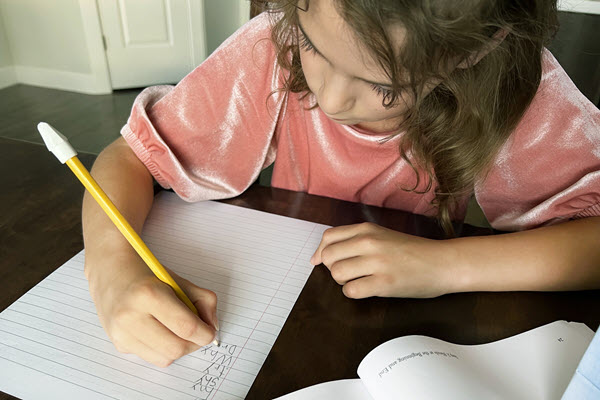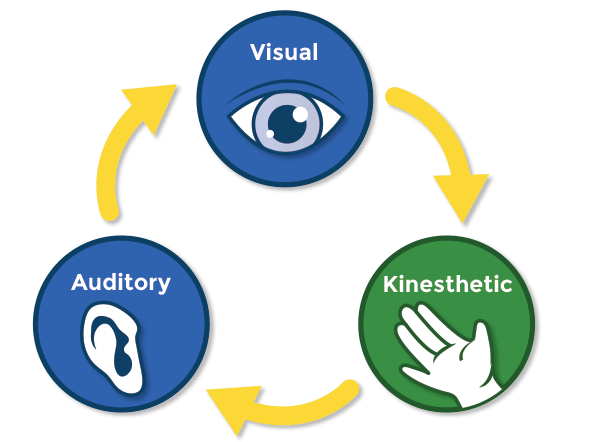
How Going Gluten-Free Transformed our Home
Hi, I’m Melissa, Beth asked me to explain how going gluten-free made a difference in our household. I have a


When we think of dyslexia, reading and spelling difficulties often come to mind first. However, dyslexia’s impact extends far beyond these academic challenges. Dyslexic children also often face challenges following instructions, managing their time effectively, and organizing their thoughts–life issues they may likely have to contend with throughout their lives. Let’s dive into how dyslexia influences life skills, social development, and everyday experiences and explore practical strategies to support your child.
Dyslexia is a neurodevelopmental disorder that primarily affects reading and writing skills. It’s not about intelligence; rather, it’s about how the brain processes language. Many people mistakenly believe dyslexia is simply about reversing letters, but it’s much more complex. Dyslexia can manifest in various ways, including difficulties with phonological processing, whole-word reversals, advanced phonics, decoding, and fluency. These challenges can make it hard for children to recognize words, spell correctly, and read with ease.
Learn more:

Children with dyslexia often face difficulties with spelling, grammar, and organizing their thoughts on paper. Many of our customers tell us how their children can tell the most imaginative stories verbally, but when it comes to writing them down, they struggle to get their ideas across.
Supporting students with dyslexia in their writing endeavors can be transformative. Experimenting with assistive technology, such as voice-to-text tools, allows students to express their ideas more freely without the barriers of traditional writing. Another effective teaching strategy we recommend is scribing, or partnership writing, in which an adult writes down the student’s spoken thoughts, which the student then copies into their handwriting. This process can be broken up over multiple days if needed, allowing students to experience the internal “hearing” of their thoughts as they write. These strategies not only improve their writing skills but also boost their confidence and academic success.
Math can present additional hurdles for children with dyslexia. Dyslexia can make word problems, sequencing, and remembering mathematical facts particularly challenging. While some students excel at understanding math concepts, they may struggle with word problems because of the reading component. To support these students, use manipulatives and incorporate multisensory approaches to teach math concepts, reinforcing learning through regular practice and repetition.
Academic struggles can take a toll on a child’s self-esteem. They might feel less capable than their peers, leading to frustration and low confidence. Celebrating small victories and focusing on their strengths can make a big difference. Positive reinforcement and encouragement can help build a child’s confidence and resilience. It’s important for parents and teachers—and especially parent-teachers—to recognize and celebrate the unique strengths and talents of children with dyslexia.

Dyslexia can also affect social skills, as some children find it hard to pick up on social cues or engage in conversations. Encouraging group activities and role-playing social scenarios can help them build these skills. Social skills training and peer support groups can provide a safe space for children to practice and develop their social interactions. Building strong social connections can enhance a child’s overall well-being and sense of belonging.
Managing time and staying organized can be particularly challenging for children with dyslexia, and these difficulties often persist into adulthood. Teaching time management and organizational skills early on can set the foundation for future success, enabling children to navigate both academic and personal challenges more effectively.
Here are some strategies to help your child develop essential life skills that will benefit them beyond the classroom. The goal for all the strategies on the following list is to teach children to do these things on their own in time, encouraging the transition from doing it for your child to teaching them to do it themselves.

Children with dyslexia often face difficulties with short-term and working memory, which can impact their ability to follow multistep instructions, retain information, and stay organized. These memory challenges can make traditional learning methods less effective. However, the Orton–Gillingham approach we use in our All About Reading and All About Spelling curricula offers a structured and supportive way to address these issues.

Widely recognized as the best way to teach children with dyslexia, the Orton-Gillingham model emphasizes simplified, focused learning that is sequential and mastery-based and uses multisensory instruction. This sight, sound, and touch multisensory engagement helps strengthen memory by creating multiple pathways in the brain for information retrieval.
Read more:
Some children with dyslexia struggle to distinguish left from right, which can affect navigation and physical coordination. Simple activities like playing directional games or using a compass can improve these skills.
Many students with dyslexia excel in creative thinking and problem-solving. They often see connections that others might miss. Encouraging creative activities like drawing, building, or storytelling can help them shine. These activities can provide an outlet for self-expression and boost children’s confidence. Recognizing and nurturing these strengths can help children with dyslexia feel valued and capable.
Famous individuals with dyslexia, such as Steve Jobs, Agatha Christie, Leonardo da Vinci, Richard Branson, and Steven Speilberg, have demonstrated extraordinary creativity and innovation. Sharing stories of these successful figures can inspire your child and show them that dyslexia can be a source of unique strengths and talents.
Overcoming the challenges of dyslexia can build resilience and determination. Discussing the trials and accomplishments of successful individuals with dyslexia can inspire your child and show that they can achieve great things, too. Role models and mentors who have navigated similar challenges can provide valuable guidance and motivation. Building resilience is a lifelong skill that will help children confidently face future obstacles.
As a parent of a child with dyslexia, it’s important to remember that you are not alone. Many parents face similar challenges, and a wealth of support is available. Seek information and resources on our site and online to better understand dyslexia and effective teaching strategies. Knowledge is power, and the more you know, the better you can support your child.
Dyslexia affects many aspects of a child’s life, but with the right support and strategies, they can overcome these challenges and succeed. Focus on their strengths, celebrate their efforts, and provide a nurturing environment. Remember, you’re not alone on this journey—plenty of resources and support are available to help you and your child.
To read how to teach spelling and reading in 30 minutes a day, click here.
Speechify is an app that can help dyslexic children as it reads online text. Here is my affiliate link.

Hi, I’m Beth. Seven years ago, when I discovered my son had dyslexia, I had a ‘light-bulb’ moment and understood this explained many of my own difficulties. Ever since, I’ve been on a mission to discover the best ways to wrestle what I like to call the dyslexia octopus.

Hi, I’m Melissa, Beth asked me to explain how going gluten-free made a difference in our household. I have a

I need nighttime anxiety relief. It’s 4 AM, and I’m reviewing what happened to Harry at school yesterday and wondering